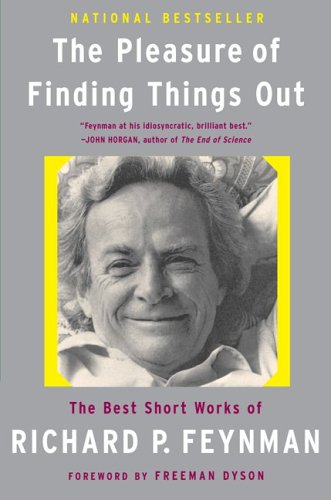Books, Brochures, and Chapters>Book Chapter: Feynman, Richard (1985), Computing Machines of the Future, Nishina Memorial Foundation, Nishina Memorial Lecture, Retrieved on 2010-11-07
Memes
03 JAN 2011
 The Chance of Error in Atomic Sized Computers
The Chance of Error in Atomic Sized Computers
The first thing that you would worry about when things get very small is Brownian motion--everything is shaking about and nothing stays in place. How can you control the circuits then? Furthermore, if a circuit does work, doesn't it now have a chance of accidentally jumping back? If we use two volts for the energy of this electric system, which is what we ordinarily use, that is eighty times the thermal energy at room temperature (kT=1/40 volt) and the chance that something jumps backward aga...As things get very small we have to worry about brownian motion and quantum effects on the system.
03 JAN 2011
 A Reversible NAND Gate
A Reversible NAND Gate
The great discovery of Bennett and, independently, of Fredkin is that it is possible to do computation with a different kind of fundamental gate unit, namely, a reversible gate unit. I have illustrated their idea--with a unit which I could call a reversible NAND gate. It has thre inputs and thre outputs. Of the outputs, tow, A' and B', are the same as two of the inputs, A and B, but the third input works this way. C' is the same as C unless A and B are both 1, in which case it changes whateve...Folksonomies: computing
Folksonomies: computing
Feynman describes a reversible logic gate, with three inputs and three outputs, one of which tracks the change in input and output, allowing the computer to reverse its operation and potentially pursue a different route.
03 JAN 2011
 Dimensions of an Atomic Size Computer
Dimensions of an Atomic Size Computer
If we somehow manage to make an atomic size computer, it would mean that the dimension, the linear dimension, is a thousand to ten thousand times smaller than those very tiny chips that we have now. It means that the volume of the computer is 100 billionth or 10^-11 of the present volume, because the volume of the "transistor" is smaller by a factor of 10^-11 than the transistors we make today. The energy requirements for a single switch is also about eleven orders of magnitude smaller than t...Folksonomies: computing
Folksonomies: computing
As described by Richard Feynman in 1985, with the benefits in energy consumption and processing power that come with it.
Parent Reference

Books, Brochures, and Chapters>Book: Feynman, Richard and Robbins, Jeffrey (1999), The Pleasure of Finding Things Out, MJF Books, New York, NY 10001, Retrieved on 2010-11-07
Folksonomies: enlightenment science 



